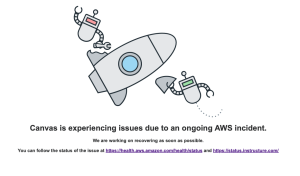SB100 bill restructures public school discipliary measures….
SB100 bill restructures public school disciplinary measures
March 21, 2017
Last year, Illinois passed a new law restructuring school disciplinary rights and restrictions.
Public Act 099-0456, or SB 100, was created to reform schools discipline structure to keep more kids in school, and to provide access to school services while students are suspended.
Many of its reforms have already existed for years at New Trier, minimizing the effect the bill will have on the school.
“If it’s a safety issue for either the student or the safety of other students, the reality is, we still operate as we would have before the law,” said Scott Williams, Assistant Principal for Student Services.
Williams has worked in the school’s discipline system for over a decade, both as assistant principal, and previously, as the sophomore boys advisor chair.
SB 100 bans the use of zero-tolerance policies and disciplinary fees or fines, though Williams said students are still held responsible for property damages.
Because New Trier has never used these systems, the bill was not an issue to implement at New Trier.
The bill requires that any students suspended for more than four days must have access to “appropriate and available support services.”
Out-of-school services which should be provided include “counseling and academic support services,” according to the Illinois Principals association.
The new law mandates schools to have exhausted all other disciplinary options unless there is an imminent “threat to the school safety or a disruption to other students’ learning opportunities” which shall be determined on case-by-case basis by the school.
One junior shared their experience with in-school suspension. “I showed up to the small room that was by where the guards hangout and I sat in there all day doing my homework.”
Although it was intimidating at times having to remain silent and not use any electronics the junior said, it was a better experience than they expected.
“The guards were actually really nice and still let us say hello to friends and made sure we ate,” the student said. One fond memory the student had was when a security guard was making hot chocolate and offered some to students.
Research from the Federal Department of Education has found that out-of-school suspensions, and often subjective zero-tolerance policies, are disproportionately used on minority students and those with disabilities.
As a result of this, SB 100 requires that school disciplinarians follow both SB 100 and disability laws.
The Illinois Principals Association said that as a result of the law now requiring that schools exhaust behavioral interventions, “school authorities will be under increased scrutiny to exhaust such interventions prior to imposing exclusionary discipline.”
Some research has shown that out-of-school suspensions can be harmful to students learning.
“Students simply did not progress toward anything beneficial during their time away,” said Stephanie Malia Krauss, a social worker and founder and CEO of Shearwater Education Foundation.
The junior said, “I would definitely agree it was a better environment [than home] because it made it seem not as bad as out of school. The junior added “I could ask questions if needed.”
An anonymous sophomore agreed, saying, “I probably would not have done any work [if I was] at home.”
Williams could not comment on the benefit students may yield from an all-day suspension, but said, “There are consequences for behaviors, and the determination of which one, whether it be in-school or an out of school detention is based on the threshold our suspension policy outlines.”










































